Directory
- Share
Luke Fletcher
- Alumni
- Australia
- 2010 PhD Politics & International Studies
- St Edmund's College
Luke Fletcher
- Alumni
- Australia
- 2010 PhD Politics & International Studies
- St Edmund's College
I have come to Cambridge after working for the last few years as an advocate on International Development Issues. My main areas of work have been past and current Australian aid and trade policy towards developing countries in the Asia-Pacific region and the impact of mining, oil and gas on developing countries and communities. I have also done some advocacy work on reform of certain global financial markets and institutions. For my PhD I hope to explore generally the origins and history of globalisation and intenational development, with a particular focus on the forces and institutions that produced the predominance of a particular model of development thinking.
Nils Flodén
- Alumni
- Sweden
- 2016 PhD Chemistry
- Christ's College
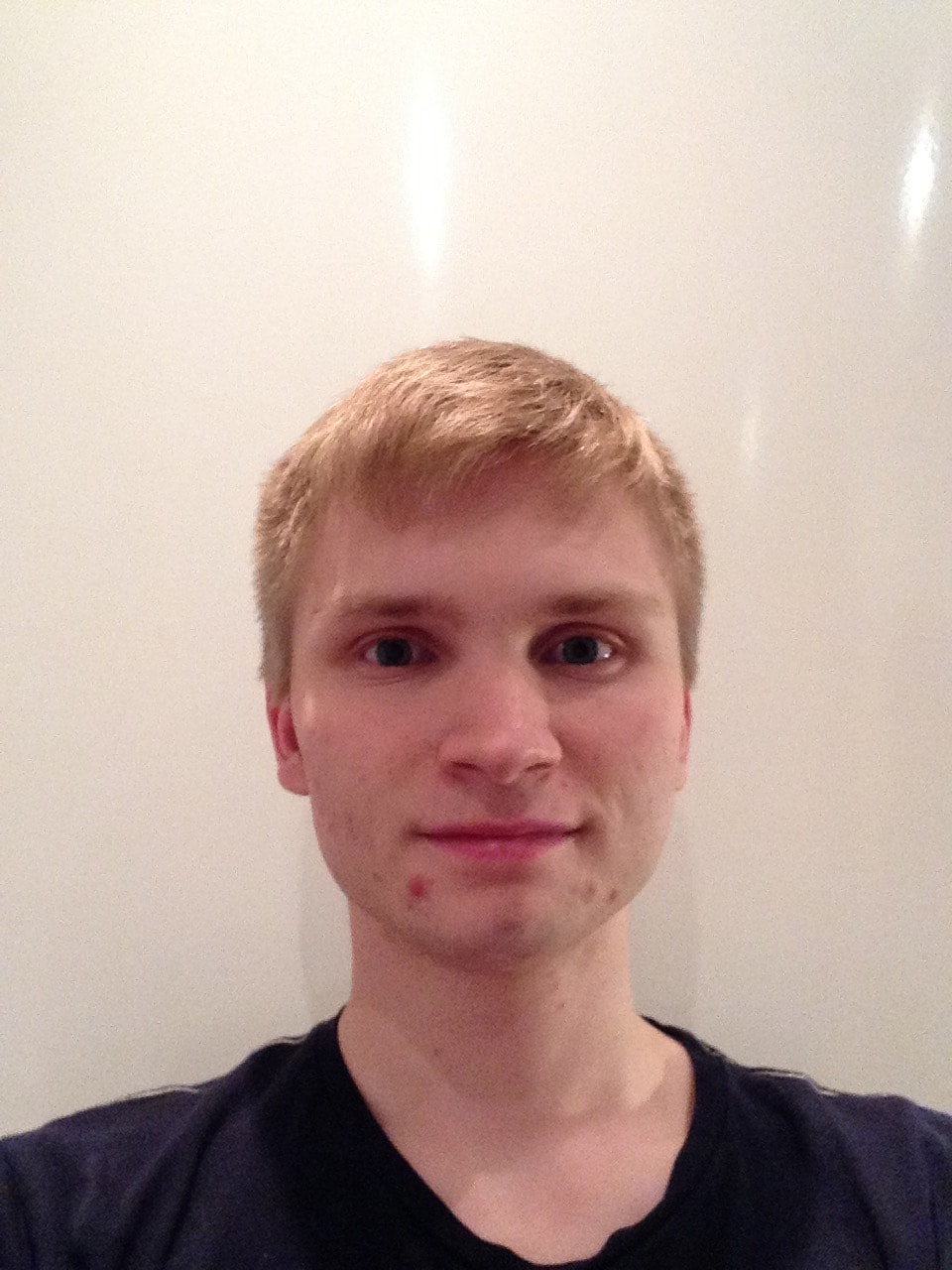
Nils Flodén
- Alumni
- Sweden
- 2016 PhD Chemistry
- Christ's College
Born and raised in Sweden, I moved to the UK in 2012 to study chemistry at Imperial College London. I was immediately captured by the science of constructing organic molecules. In the sense that organic chemistry is often about constructing things, it is somewhat similar to engineering but with a fundamental twist - we can’t see anything that we make. This makes the field really exciting and having done research in various areas of chemistry at Stockholm University, Imperial College London and the University of Cambridge, my PhD will focus on the functionalisation of carbon-hydrogen bonds. This area holds huge promise since these bonds exist in essentially every organic molecule important to human life and the ability to transform them will likely prove crucial in the development of drugs and functional materials in the future. My research will also make use of automated, computer-controlled technology which is currently transforming the chemical science as we know it. I am absolutely thrilled to be able to carry out this research in Cambridge over the coming years and to join the Gates Cambridge community of scholars from all over the planet.
Previous Education
Imperial College London
Amparo Flores
- Alumni
- United States
- 2006 PhD Engineering
- St John's College

Amparo Flores
- Alumni
- United States
- 2006 PhD Engineering
- St John's College
Born in the Philippines, I moved to California in 1989. My past education and experience have been grounded in environmental engineering, specifically water and sanitation issues, but I hope to explore related socio-economic and policy issues at Cambridge. My research here is focused on developing ecological sanitation alternatives for urban areas in both developing and industrialized countries. I'm also hoping to round out my technical education with courses in the humanities and interactions with people from other disciplines. After Cambridge, I plan to return to public service and eventually pursue a leadership position in environmental management and policy.
Kenneth Fockele
- Alumni
- United States
- 2008 MPhil European Literature
- Pembroke College

Kenneth Fockele
- Alumni
- United States
- 2008 MPhil European Literature
- Pembroke College
In college, I came to study German almost accidentally, drawn by inspiring professors. There I found my intellectual home, but I became part of other communities as well, through soccer, running, and volunteer programs. I taught a writing class at the local arts council and directed a mentoring program that matched Princeton students with local children. Thanks to a DAAD Fellowship for study in Berlin in 2007-2008, I was able to continue research I had done for my senior thesis on medieval Geman courtly love poetry. At Cambridge and later at UC Berkeley, I deepened and broadened my study of medieval German literature. My MPhil and PhD research focused on the aesthetics and politics of courtly lyric. I examined the literary techniques that poets used to craft individual personae to distinguish themselves as members of an aesthetic elite. Since finishing the PhD, I have worked in politics and government in Washington state, where I am now a speechwriter for the Senate Democratic Caucus at the state legislature.
Gavin Foh
- Alumni
- Singapore
- 2003 PhD Engineering
- Churchill College

Gavin Foh
- Alumni
- Singapore
- 2003 PhD Engineering
- Churchill College
Currently working in the Finance industry in Singapore.
Katherine Folz
- Alumni
- United States
- 2004 MPhil Chemistry
- St John's College
Katherine Folz
- Alumni
- United States
- 2004 MPhil Chemistry
- St John's College
Julia Forman
- Alumni
- United States
- 2003 PhD Chemistry
- Magdalene College
Julia Forman
- Alumni
- United States
- 2003 PhD Chemistry
- Magdalene College
Since my PhD, studying the biophysical properties of proteins involved in genetic disease, I've moved to a few different research areas, all linked to health. I shifted first to bioinformatics, then to public health and clinical trials. Geographically, I moved from Cambridge to Paris, for a three year fellowship at the Pasteur Institute, and then back to Cambridge (UK) where I live now.
Anna Forringer-Beal
- Alumni
- United States
- 2017 MPhil Multi-Disciplinary Gender Studies
2019 PhD Multi-disciplinary Gender Studies - Darwin College
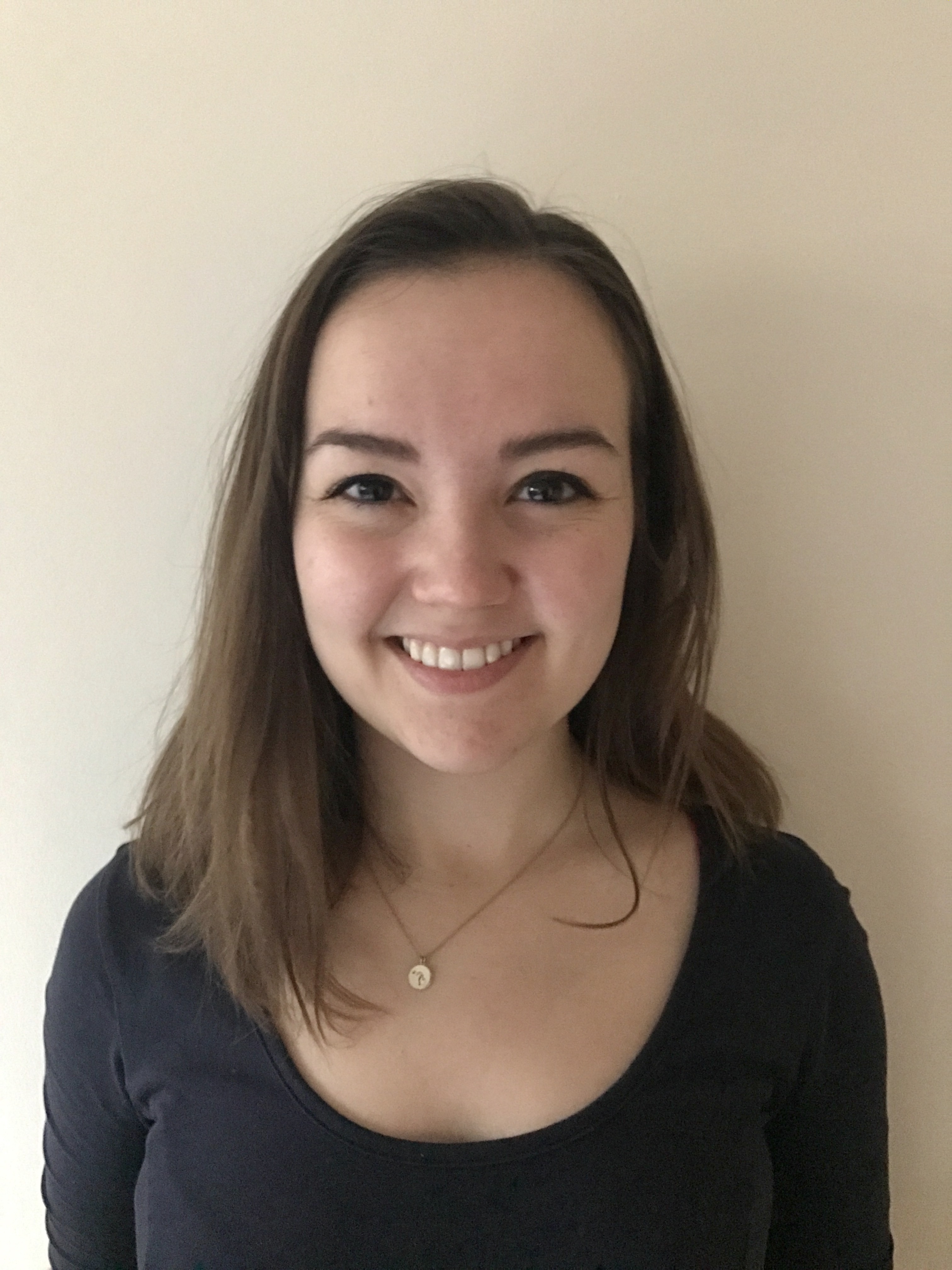
Anna Forringer-Beal
- Alumni
- United States
- 2017 MPhil Multi-Disciplinary Gender Studies
2019 PhD Multi-disciplinary Gender Studies - Darwin College
After seeing firsthand how the law impacted the daily lives of women through the Undocumented Migration Project or on the National Human Trafficking Hotline, I felt compelled to study the construction of laws and the cultural attitudes which influence them. Through an MPhil in Gender Studies at Cambridge, I was able to explore how stereotypes about immigrants and sex workers impacted data gathering, victim assistance, and ultimately limited the scope of the UK Modern Slavery Act of 2015. I am humbled to be returning to the Gates Scholar’s Community to expand this project through a PhD in Gender Studies. By constructing a genealogy of anti-trafficking law stretching back to the White Slave Panics of the late 1800’s, I aim to show that anti-trafficking laws are currently constrained by xenophobic thought. It is my hope that this work will refocus anti-trafficking policy to human rights and survivor support as the most effective tools in combating trafficking. When not writing about human trafficking, I can be found baking, boxing, or fastidiously reorganizing my to-do lists.
Previous Education
University of Cambridge MPhil Gender Studies 2018
University of Michigan Bachelor of Arts Anthropology 2016
Hamish Forsyth
- Alumni
- New Zealand
- 2007 MBA Management Studies
- Pembroke College
Hamish Forsyth
- Alumni
- New Zealand
- 2007 MBA Management Studies
- Pembroke College
The focus of my MBA is international entrepreneurship, as well as its socially transformative role. Previously, I studied philosophy and law, and worked as a clerk to an appellate Justice, then as a diplomat and trade negotiator. I have very broad interests, so I'm looking forward to learning from the diverse range of talented, excited, people I will meet at Cambridge. I hope to collaborate with others to identify new opportunities at a university famed for its innovation in a wide variety of fields, including in applied sciences.
Vinicius Alexandre Fortes De Barros
- Scholar
- Brazil
- 2024 PhD Law
- Gonville and Caius College
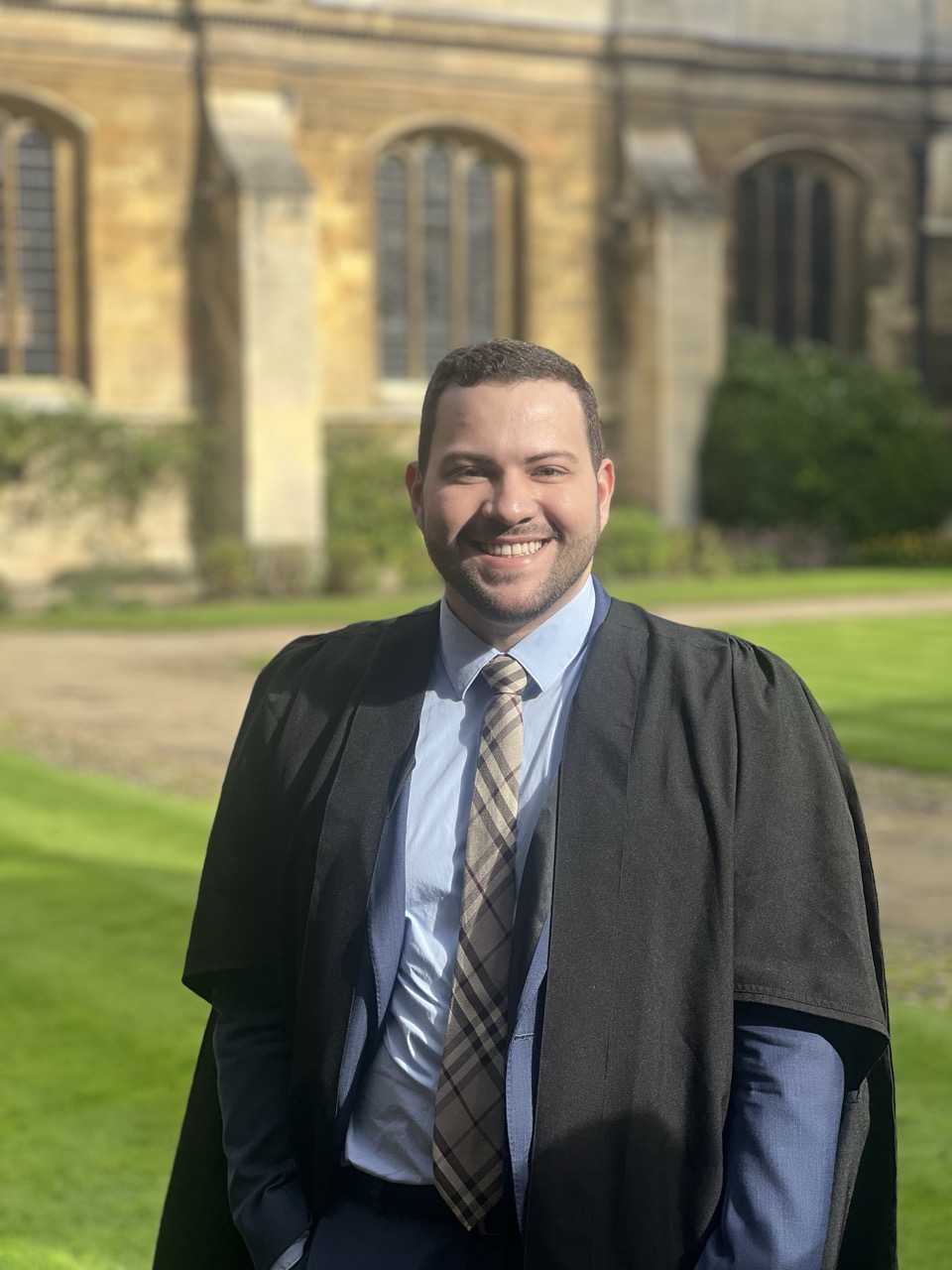
Vinicius Alexandre Fortes De Barros
- Scholar
- Brazil
- 2024 PhD Law
- Gonville and Caius College
I come from Cuiabá, a city right in the middle of South America. Unfortunately, my home state, Mato Grosso, is one of the most homophobic states in Brazil, which is why I always present myself as one of the few openly gay Federal Prosecutors in Brazil. Representation matters! Academically, in 2010, I was one of the first students from the Federal University of Mato Grosso, Brazil, to attend the Hague Academy of International Law. I have a Master of International Law from the University of Cambridge and was awarded a Jennings Award from Wolfson College for my performance at the LLM. Also, I was awarded a Golden Award at Cambridge for my activities at the Cambridge Pro Bono Project. Professionally, in 2015, I was the youngest Judge at the Mato Grosso State Court. In 2016, I became a Federal Prosecutor and have been working with human rights and criminal law. During the LLM, I was deeply interested in international humanitarian law. Therefore, because I am part of the LGBTQIA+ community and wanted to investigate how armed conflicts affect vulnerable groups, for my PhD, I plan on researching how international humanitarian law can protect LGBTQIA+ persons (combatants and non-combatants) during and after wars.
Previous Education
University of Cambridge Master of Laws 2022
Fundação Escola do Ministerio Law 2012
Molly Fox
- Alumni
- United States
- 2008 PhD Biological Anthropology
- Gonville and Caius College
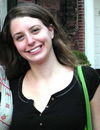
Molly Fox
- Alumni
- United States
- 2008 PhD Biological Anthropology
- Gonville and Caius College
I am a biological anthropologist interested in the evolutionary context of chronic disease and the biosocial relationships between grandmothers, mothers, and children.
Krzysztof Franaszek
- Alumni
- Poland
- 2014 PhD Pathology
- Churchill College
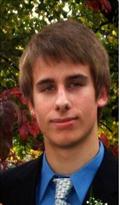
Krzysztof Franaszek
- Alumni
- Poland
- 2014 PhD Pathology
- Churchill College
Currently working towards a PhD in Pathology.
Paul Franklyn
- Alumni
- South Africa
- 2004 PhD Chemistry
- Darwin College

Paul Franklyn
- Alumni
- South Africa
- 2004 PhD Chemistry
- Darwin College
I have always been driven by scientific curiosity. Cambridge has the resources to allow me to carry out science for the sake of science with no direct industrial application. My focus is the crystal structure of nanoparticles and in determining and explaining the mechanism by which crystalline nanoparticles form. I'm using the opportunity of being based in the UK to gain international experience and to meet experts before returning to South Africa to work in a university there on nanoscience.
Kate Franko
- Alumni
- United States
- 2002 PhD Physiology - Maternal and Child Health
- Wolfson College

Kate Franko
- Alumni
- United States
- 2002 PhD Physiology - Maternal and Child Health
- Wolfson College
Previous Education
Cornell University BS (HONS) Biological Sciences
Links
Dustin Frazier
- Alumni
- United States
- 2005 PhD Anglo Saxon
- Darwin College

Dustin Frazier
- Alumni
- United States
- 2005 PhD Anglo Saxon
- Darwin College
For me, one of the most interesting and exciting things in life is learning how different people view themselves. Within my field, I will study the interrelationship of knowledge, learning and cultural identity; also, the role of individuals in shaping personal and collective self-awareness. From there, I hope to extend my study forward into the ways that innovations in knowledge transmission and application continue to shape ever-changing concepts of individual and group identity.
Allyson Freedy
- Alumni
- United States
- 2014 MPhil Chemistry
- Jesus College
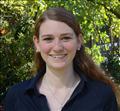
Allyson Freedy
- Alumni
- United States
- 2014 MPhil Chemistry
- Jesus College
Growing up in Clearwater Florida, I graduated from Harvard College in May 2014 with a degree in Chemistry. Throughout my time as an undergraduate, I was amazed by the power of organic chemistry to influence medicine. I focused my senior thesis on the activity of covalent modifiers, molecules whose unique chemical reactivity affords them a desirable biological effect. At Cambridge, I pursued an MPhil in Chemistry under the supervision of Gonçalo Bernardes, a Research Associate at Peterhouse College. My research at Cambridge focused on the chemistry used to modify proteins and develop targeted therapies, like antibody-drug conjugates, for the treatment of a variety of cancers. I am currently pursuing an M.D. Ph.D. at Harvard Medical School and the Massachusetts Institute of Technology, continuing my exploration of the intersection of chemistry and medicine. I hope to one day unite these disciplines to both help develop innovative therapeutics and uncover new insights regarding disease biology.
Erika Freeman
- Alumni
- Canada
- 2018 PhD Plant Sciences
- Lucy Cavendish College
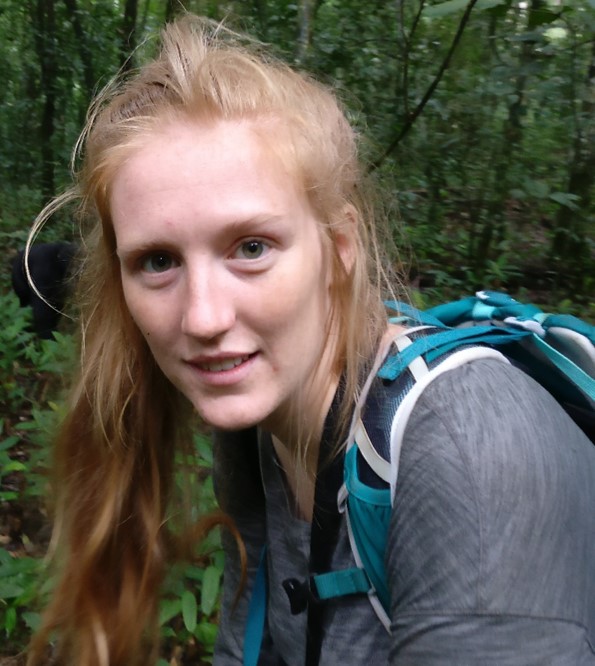
Erika Freeman
- Alumni
- Canada
- 2018 PhD Plant Sciences
- Lucy Cavendish College
Through inefficient and inequitable resource use, society has pushed natural systems beyond their planetary boundaries, such that our own well-being is being undermined. This idea roused my curiosity during my BSc in Environmental Sciences, and the need for a better understanding of the complex relationship between environmental and human health has motivated much of my academic career. While completing my MSc in Geography at Western University, Canada, I traveled to Uganda as part of a Global Health Systems program. This experience was perspective-building; reinforcing the idea that the most under-privileged and impoverished in our global village are the most vulnerable to harm associated with environmental degradation. In Uganda, I worked with communities to address environmental and social issues and facilitated a partnership with a local women’s handcraft group forming a Not-for-Profit organization that aims to support the entrepreneurship of women through the sale of the group’s handwork. My PhD in Plant Sciences will further develop the understanding of the risks human activity poses to ecosystem stability by exploring the link between forestry management practices and the protection of aquatic ecosystems. The broader aim is to ensure that resources are being managed efficiently so that human well-being is not compromised. I am honoured to join the Gates Cambridge Community, a community not only interested in intellectual progress, but in the betterment of humanity.
Previous Education
University of Western Ontario
Luise Frenkel
- Alumni
- Brazil
- 2007 PhD Divinity
- Lucy Cavendish College
Luise Frenkel
- Alumni
- Brazil
- 2007 PhD Divinity
- Lucy Cavendish College
Since 2013, Assistant Professor in Classical Greek at DLCV-FFLCH/Universidade de São Paulo, Brazil. In 2012-3, she held a Fapesp post-doctoral fellowship at DLCV-FFLCH/USP, after benefitting from a British Academy funded research stay at the British School at Rome in 2012, as member of a KCL project on iconography. In 2015/6, she was awarded a research scholarship from Fondation Hardt (Switzerland), a Visiting Scholarship at St Edmunds (Cambridge, UK) and a Junior Fellowship at the Max-Weber Kolleg (Erfurt, Germany). As a Gates scholar, she received a Ph.D. in Divinity from the University of Cambridge (2007-2012). She also holds a Ph.D. in Applied Mathematics from the Institute of Mathematics and Statistics, USP, Brazil (2003-2007), a B.A. in Classical Greek (2006) and a B.Sc. in Molecular Sciences (2003), both also from USP. Her research focuses on the Roman East in the fifth century A.D., and on the transmission of Greek, Syriac, Ge'ez and Latin sources. Her current projects concern Christological polemical works, synodical and senatorial proceedings, acclamations and the construction of imperial authority. Other research interests are imperial and Byzantine hexametric poetry and education, and the medieval reception of classical and late-antique philosophy and theology in Greek, Syriac, Arab and Latin.








